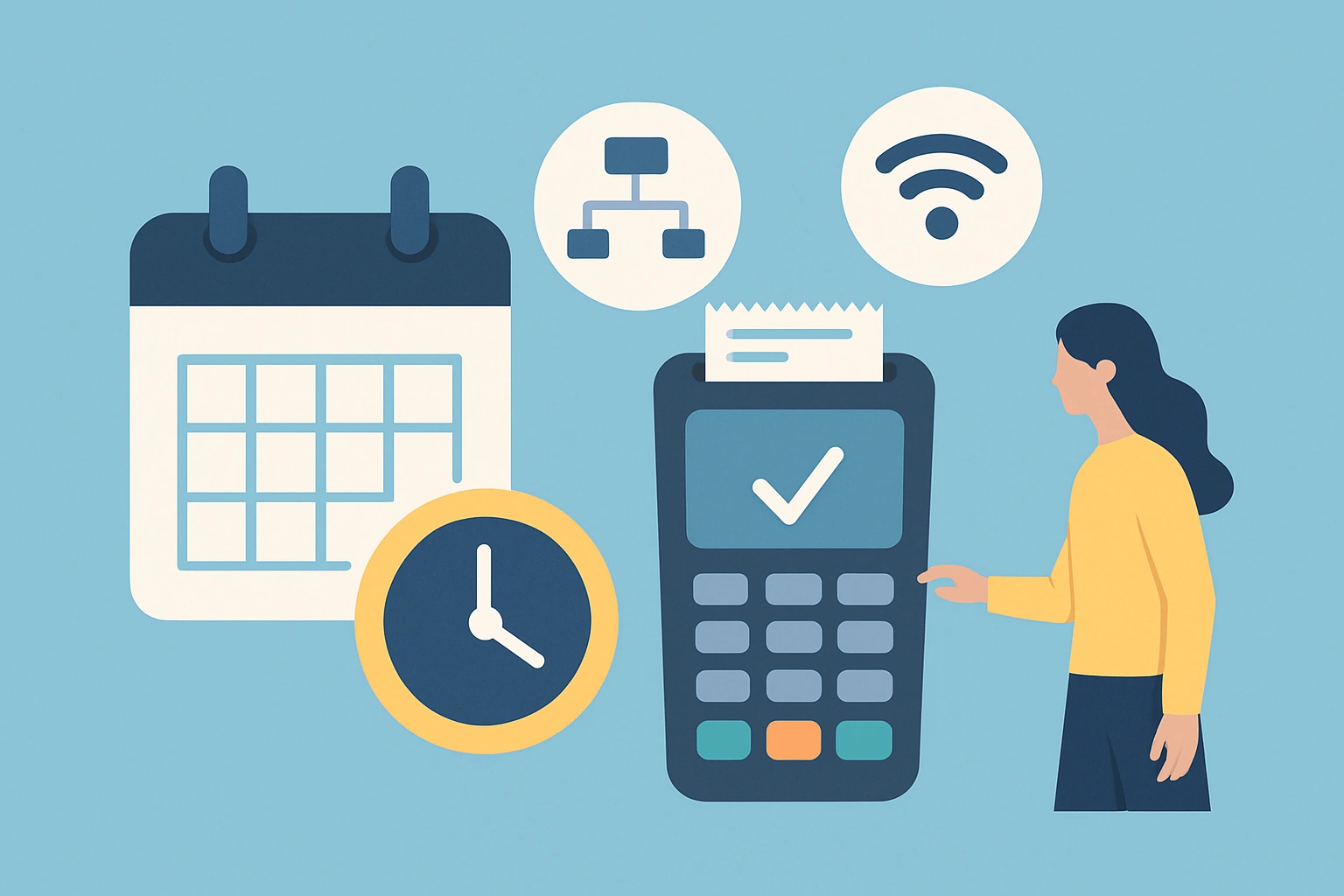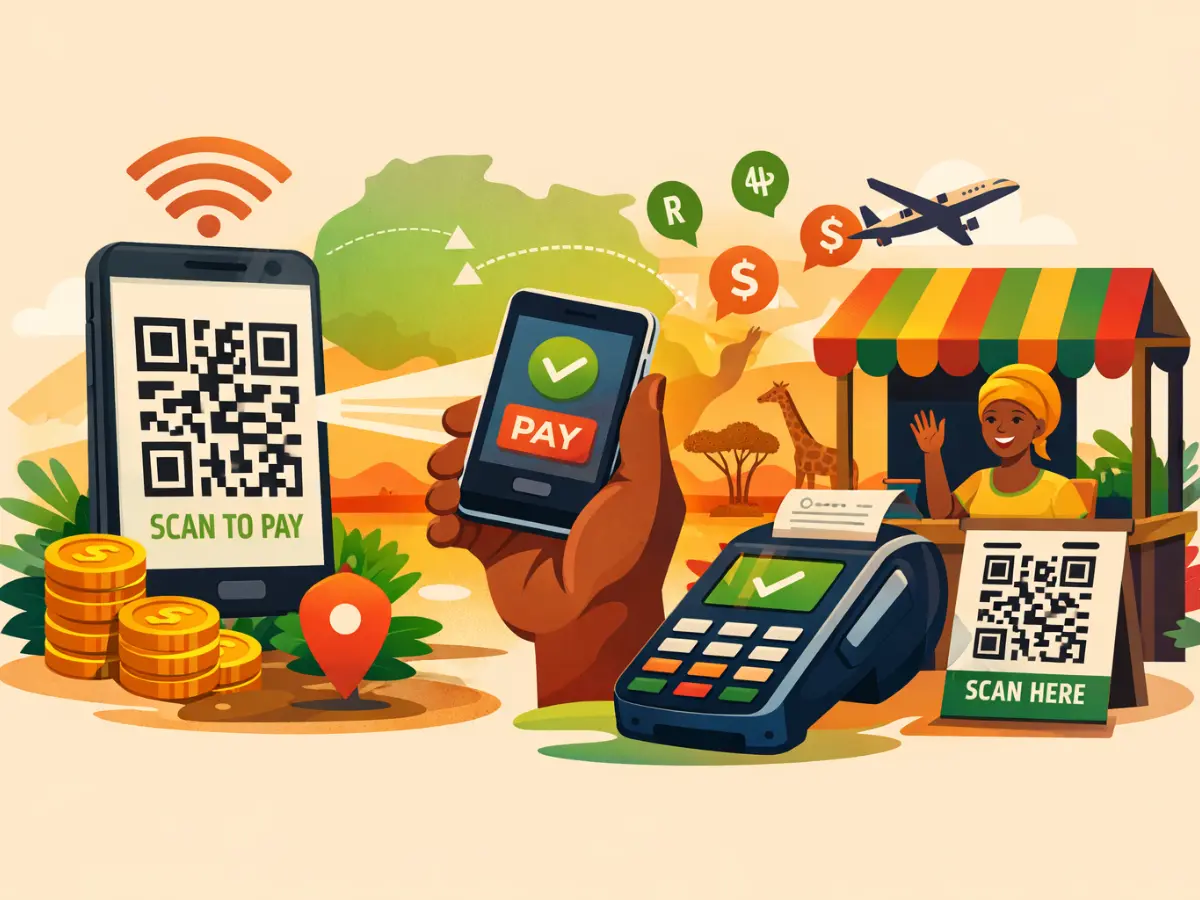Having a business is already a lot of work – managing inventory, keeping customers happy, and staying on top of finances. All these can get cumbersome when it comes to payments. The time spent processing invoices, chasing down late payments, and manually recording transactions. All these can quickly add up, straining your financial department. But what if I tell you there is a way to streamline this process using an automated payment system?
Modern automated payment solutions, such as automated payment systems, can lessen these issues by boosting productivity and doing away with the tedious, manual procedures that are frequently required. In this article, you will learn what automated payment systems are, how they work, and the best way to utilize them.

What is an Automated Payment System?
An automated payment system is an electronic system that is used by businesses to automate their payment processes. It covers several forms of payment, from customer transactions to payment of salaries.
Automated payment systems don’t just automate payment processes but help businesses improve, streamline, and optimize their financial procedures. These automated payment systems are versatile, and they facilitate payment across several payment methods like cards, wire transfers, digital (contactless) payments, EFTs, and many more.
How Does Payment Automation Work?
Generally speaking, payment automation involves the use of automated techniques to handle a variety of payment-related data and carry out associated activities with little or no human intervention.
The online invoicing software is one of the major processes used with automated payment systems. The system takes an invoice in different formats, interprets the information on it, and then stores it. On storing the data, the system reviews it and determines if it will be automatically approved or held for manual review if any irregularities appear.
Another key instance of how automated payment systems work is ACH verification. Automated Clearing House (ACH), is an electronic mode of payment that involves the direct transfer of money from one account to the other. The process of ACH requires the bank details to be verified, but this can be done easily on automated payment systems.
What are the Benefits of Automated Payment Systems?
Automated payment systems have numerous benefits that are practically inexhaustible, from cost savings to better security. These benefits don’t apply to you alone but also to your customers. Below are some of the significant advantages of using an automated payment system.
Time and Cost Savings
The use of manual payment processing doesn’t just take time to handle the paperwork, but is also costly. With the use of an automated payment system, you can cut down the amount you spend on accounts payable staff and payment procedures.
Automated payment systems are fast and efficient, performing most of the manual work, like data capture and authentication, using technology.
Reduced Risk of Human Error
One of the greatest risks of manual payment processing is human error, especially when you have a lot of transactions. Automated payment systems solve this problem by using complex algorithms that don’t feel stressed or tired. You don’t need to worry about wrong input of data, thereby avoiding issues with your customers.
Greater Transparency and Accountability
Automated payment systems use a dashboard that shows everything related to your payment activity. This implies that with a few clicks, you can visualize data of all the payment transactions you’ve made. You can then make actionable, informed decisions based on the insights you get.
Better Security
Another significant benefit of automated payment systems is that they are secure. These systems use technology that can easily detect fraudulent activities and hold them for staff to verify. They also, mostly, use a cloud-based network which not only secures your data from local desktop malfunctions but also gives access to authorized users.
Improved Cash Flow
Businesses benefit from faster payment collections made possible by automated payment systems, which also improve cash flow. Financial stability is improved by speeding up the receivables cycle through real-time transaction processing and automated reminders for past-due payments.
The Best Practices When Using an Automated Payment System
Automated payment systems are no doubt a game-changer for businesses, streamlining finances and saving valuable time with better security. But to ensure they function at their peak, you need to implement some practice, important practices. Some of the key things to do are:
Test and Monitor Regularly
Whenever you are using a new system, ensure you test it thoroughly before deploying it for public use. After which, you must ensure you train the authorized user(s) on how to optimally use it.
It is also crucial that you monitor the system from time to time after first use. Just like any other software, your automated payment system needs to be kept up-to-date. Regularly install updates to patch security vulnerabilities and ensure you have the latest features.
Security
When setting up your account, ensure you use strong passwords and two-factor authentication, if applicable. This will be another form of firewall to prevent your account from possible malicious activities.
Provide Multiple Payment Options
One way you can also optimize the use of automated payment systems is to offer a variety of payment options, like ACH transfers, credit cards, etc. As a result, you can strengthen vendor relationships by not just supporting their methods but also paying them more quickly and effectively.
Seek Internal and Partner Buy-in
You must get everyone on board. You must ensure you train every staff member on the new system you’re using and address any of their concerns. If you work with vendors or partners, ensure their systems can integrate smoothly for seamless automated transactions.
How to Select Payment Automation Software
When choosing the best payment automation system, you should always conduct thorough research. After all, each organization is unique, as is every payment automation platform now on the market.
In general, the most crucial factor to consider throughout the choosing process is the capacity to handle any invoice processing scenario that may emerge in the business you run. A payment automation system that does not fully automate all invoice processing operations will result in much lower time and hard cost reductions.
It’s also critical to examine whether a payment automation system will work seamlessly with your company’s existing enterprise resource planning (ERP) solution. Synchronizing data and building a simplified procedure with little manual intervention is essential for a successful automated accounts payable process.
Conclusion
In the ever-changing technological landscape, automated payment systems have evolved as an essential component of modern financial operations. These technologies have revolutionized the way we move cash, make purchases, and handle payments, providing efficiency, convenience, increased security, and cost savings.
So, whether you’re a business owner trying to increase cash flow or an individual searching for a simpler method to handle your expenses, automated payment systems are worth exploring. Take some time to examine the many possibilities available and select the one that best meets your requirements and budget.
Frequently Asked Questions
How Does an Automated Payment System Work?
Automated payment systems work by eliminating the manual procedure in payment processing. The system works electronically on preset metrics and conditions to process transactions almost instantly. The metrics include a certain amount to be deducted at a certain interval.
What is an example of an Automatic Bill Payment?
An example of automatic bill payment is the subscription you make on your music streaming platform. You subscribe to a streaming platform for a charge of 14 USD per month by entering your account details on the payment page. As you enter your details, it means you agree to the payment terms, and thus, 14 USD will be deducted from your account every month until you end the subscription.
How do I Make an Automated Payment?
As an end user, making automated payments is easy since you are not the one setting up the automation system. Take Netflix as an example, when you register to watch movies, you’d be asked to enter your preferred payment option details. That is pretty much all that you have to do because once you enter your details, you will be charged automatically every month.
What are the Advantages of Using Automated Systems for Tracking International Payments?
Automated payment systems are good for tracking international payments because of several complexities that can be caused by the use of manual payment methods. With the use of automated payment systems, you can easily and correctly convert currencies between two countries. Automated payment systems also process payments faster as they cut out several processes that you do using manual payment systems.
You can read more answers to other questions on invoicing here or if you find your article missing, you can learn how to request an invoice.
Ready to scale your fintech across Africa?
Join Paycape to get discovered, find partners, and stay compliant across West Africa
Join the Waitlist



